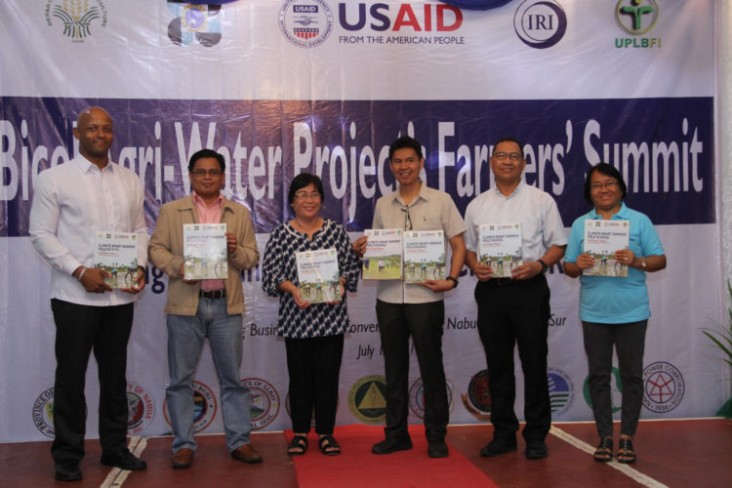
For Immediate Release
The United States government, in partnership with the University of the Philippines Los Baños Foundation, Inc. (UPLBFI), recently marked the completion of the P76 million Bicol Agri-Water Project (BAWP) during a Farmers’ Summit at the Macagang Business Center in Nabua, Camarines Sur.
The five-year program, funded by the United States Agency for International Development (USAID), introduced local farmers to new technologies and innovative rice farming practices to reduce the impact of natural calamities and improve food security in the region.
As a result of the project’s Climate Field School Program, more than 600 farmers are now using disaster-resilient practices, while local government partners have adopted the use of a seasonal climate forecast. At the Farmers’ Summit, USAID also presented the Philippine Department of Agriculture (DA) with a training manual for farmers on how natural disasters impact rice production and how they can use different farming techniques to improve harvests.
“USAID is pleased to work with our partners to help rice farmers in the Bicol region gain new knowledge and skills that will help them be prepared and more resilient to the impacts of natural hazards,” said USAID Philippines Executive Office Acting Chief Timothy Marlowe.
The BAWP is implemented by the UPLBFI in partnership with the DA’s Regional Field Office 5 (DA-RFO5), Philippine Atmospheric, Geophysical, and Astronomical Services Administration, International Research Institute for Climate and Society - Columbia University, Central Bicol State University, Bicol University College of Agriculture and Forestry, and the local governments of Camarines Sur, Albay, Nabua, Buhi, and Polangui.
“Preparedness is much better and cheaper than response, and through the Bicol Agri-Water Project, farmers are now better prepared for the future,” DA-RFO5 Regional Executive Director Dr. Elena De Los Santos said.







Comment
Make a general inquiry or suggest an improvement.